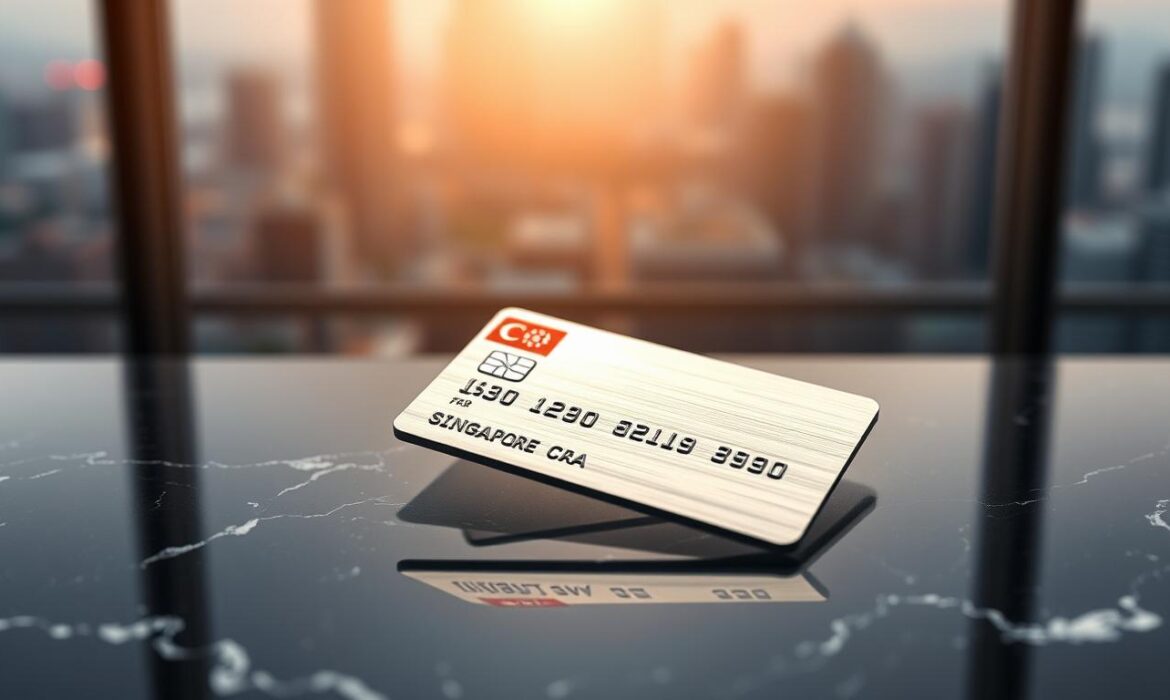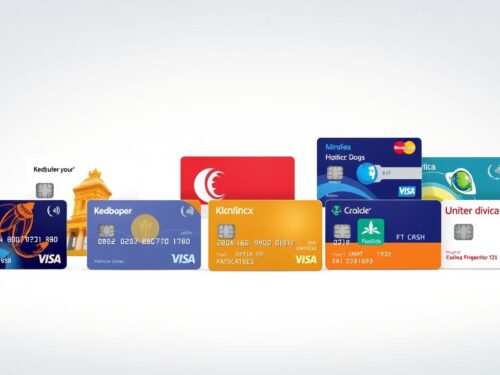Singapore’s financial market offers plenty of options for those who love earning rewards while spending. Whether you’re a frequent flyer or an occasional vacationer, choosing the right financial tool can make a big difference.
With competitive perks like lounge access, no foreign fees, and flexible miles programs, it’s essential to compare carefully. Recent updates, including HSBC Revolution’s new contactless benefits and exclusive promotions from Standard Chartered, add even more value.
This guide simplifies your search by analyzing over 9,200 options and breaking down key features. Find the perfect match for your lifestyle and spending habits.
Key Takeaways
- Singapore’s market has diverse rewards programs for different spending styles
- Lounge access and foreign transaction policies vary significantly
- New 2025 updates bring fresh benefits to existing programs
- Miles expiration rules impact long-term value
- Contactless payment options continue expanding
Introduction to Travel Credit Cards in Singapore
Exploring financial tools designed for globetrotters reveals unique perks beyond standard rewards. Unlike regular options, these products partner with airlines and hotels to unlock exclusive benefits. Singapore’s role as a regional hub amplifies these advantages, with tailored features for international spenders.
Miles systems form the backbone of these programs. Most convert spending into airline miles, but conversion fees and redemption rules vary. For example, DBS Altitude recently phased out its Mr & Mrs Smith perks, while Citi and OCBC now offer non-expiring miles—a shift from traditional 3-year limits.
Key components to compare include:
- Miles accrual rates (local vs. overseas spending)
- Foreign currency conversion charges
- Travel insurance coverage tiers
| Feature | Traditional Cards | 2025 Updates |
|---|---|---|
| Miles Expiry | 3 years | No expiry (Citi/DBS/OCBC) |
| Annual fees | Commonly waived year 1 | Multi-year waivers for high spenders |
| Redemption Flexibility | Airline-specific | Transfers to 10+ partners |
For those prioritizing flexibility, compare top miles options to find programs aligning with your itinerary. Recent trends favor cards with broader lounge access and lower forex margins, ideal for cross-border explorers.
Why You Need a Travel Credit Card in Singapore
Smart spending abroad starts with choosing tools designed for international lifestyles. Specialized plastic turns everyday purchases into air miles and airport perks, with some programs offering S$1 = 4 miles on overseas transactions.
Consider this: a Kuala Lumpur round-trip typically requires 15,000 miles. That’s just S$3,750 spent internationally on top-tier cards versus paying S$300+ cash for the same flight.
Airport lounge access shows even clearer value. Pay-per-visit costs average S$50-75, while premium cards provide 4-8 complimentary entries annually. Some even extend this to guests at no extra charge.
Foreign fees are another wallet-saver. Standard cards add 3.25% to overseas spending, but travel-focused options like UOB PRVI Miles eliminate these entirely. Over a year, this could mean S$650 saved on S$20,000 spent abroad.
Protection matters too. 63% of frequent flyers utilize their complimentary travel insurance, with coverage often including:
- Flight delay compensation (S$200+ per incident)
- Lost baggage protection up to S$10,000
- Emergency medical evacuation
Exclusive partnerships add finishing touches. UOB’s KrisShop gives 6 miles/S$1, while Agoda bookings through certain portals earn triple rewards. These stackable benefits make every dollar work harder for your next adventure.
Best Travel Credit Card Singapore: Top Picks for 2025
2025 brings exciting updates to reward programs designed for frequent spenders. Whether you prioritize air miles, lounge access, or flexible redemptions, these options deliver unmatched value.
Citi PremierMiles Card
Earn 1.2 miles per S$1 locally and 2 miles overseas. Non-expiring miles and a 45,000-mile bonus (till June 2025) make this ideal for long-term planners.
DBS Altitude Card
3 miles per S$1 on flights and hotels. Complimentary travel insurance covers delays up to S$1,000. Annual fee waiver available for spends over S$25,000.
OCBC 90°N Card
360 Rewards points never expire. Highlights include 4 miles/S$1 on Agoda bookings and a S$196.20 fee (waivable first year).
| Feature | Citi PremierMiles | DBS Altitude | OCBC 90°N |
|---|---|---|---|
| Miles Expiry | None | 3 years | None |
| Foreign Fee | 0% | 2.5% | 0% |
| Signup Bonus | 45,000 miles | 20,000 miles | 10,000 miles |
HSBC Revolution Credit Card
3 mpd on transport/food delivery (S$1k monthly cap). Best for Grab users, with points convertible to KrisFlyer miles.
Amex Singapore Airlines KrisFlyer Credit Card
Direct KrisFlyer miles accrual. Includes lounge passes and enhanced travel insurance for SIA flights.
UOB PRVI Miles Card
No foreign fees and 2.4 mpd globally. Complimentary limo transfers elevate airport experiences.
Each credit card caters to distinct lifestyles. Compare redemption flexibility and fees to find your perfect match.
Comparing Miles Earn Rates
Reward structures vary widely, making it crucial to compare earn rates before choosing. The right program can turn everyday purchases into flights faster.
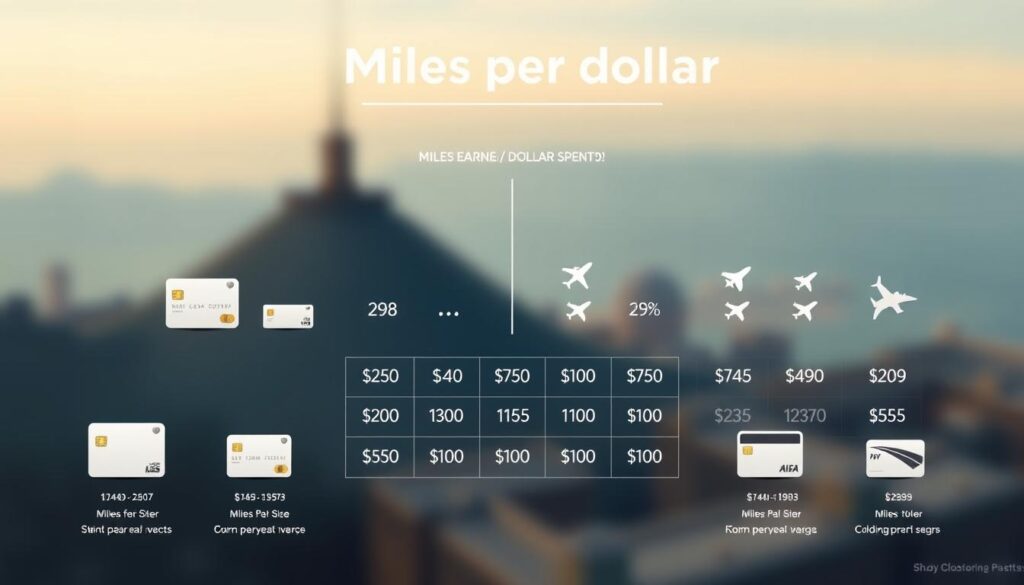
| Card | Miles per S$1 (Overseas) |
|---|---|
| UOB PRVI Miles | 2.4 |
| Citi PremierMiles | 2.2 |
| DBS Altitude | 2.2 |
Local spending rates differ too. OCBC 90°N offers 1.3 miles per S$1, while HSBC Revolution gives 4 miles—but caps rewards at S$1,000 monthly.
Niche leaders stand out. Amex KrisFlyer grants 8.5 miles per S$1 on Singapore Airlines bookings. This is ideal for loyal SIA flyers.
Minimum spends affect value. Maybank requires S$800 monthly to unlock full benefits, whereas UOB PRVI has no such rule.
Third-party data reveals gems like StanChart Beyond’s 4 miles per S$1 premium option. Always check for hidden caps or exclusions.
Complimentary Airport Lounge Access
Access to exclusive lounges transforms stressful layovers into peaceful retreats. Premium programs like Priority Pass and DragonPass let you escape crowded gates with complimentary lounge visits. Not all networks are equal—compare carefully to match your travel habits.
- UOB PRVI Miles: 4 annual visits (Priority Pass)
- Citi PremierMiles: 2 visits (DragonPass)
- SC Journey Card: 2 visits + guest discounts
Bringing a companion? Expect fees around $27 per visit. Some lounges waive this for premium tier holders.
| Network | Coverage | Lounge Quality |
|---|---|---|
| Priority Pass | 1,300+ lounges | Plaza Premium (top tier) |
| DragonPass | 1,000+ lounges | Generic (basic amenities) |
Pro tip: Stack memberships from multiple cards to maximize visits. Pair a Priority Pass card with a DragonPass option for global coverage.
Whether you prioritize champagne service or quiet workspaces, lounge access elevates every journey. Choose programs aligning with your frequent routes for seamless relaxation.
Travel Insurance Benefits

Unexpected travel disruptions become manageable with comprehensive coverage from premium programs. Top-tier options like DBS Altitude offer up to S$1 million in travel insurance, while Standard Chartered Journey provides S$500,000 protection.
Common claim scenarios include:
- Flight delays exceeding 6 hours (S$200-1,000 compensation)
- Lost baggage coverage (up to S$10,000)
- Emergency medical expenses abroad
Activation is simple—just charge 100% of your ticket cost to the card. This complimentary travel perk often beats buying separate policies costing S$150+ per trip.
| Card | Coverage Limit | Key Benefit |
|---|---|---|
| DBS Altitude | S$1M | Covers adventure sports |
| SC Journey | S$500K | Family coverage included |
Read the fine print—most insurance excludes extreme activities like skydiving. Pre-existing conditions may also require additional coverage.
For frequent flyers, these built-in protections can save hundreds annually while providing crucial peace of mind during journeys.
Foreign Currency Transaction Fees
Cross-border spending triggers fees that vary by financial provider. Most banks charge 2.25% for currency conversion, plus a 1% network fee from Visa/Mastercard. This adds up fast—a S$1,000 hotel stay could cost S$32.50 extra.
Watch for Dynamic Currency Conversion (DCC) traps. Merchants may offer to bill in your home currency, but rates are often worse than your bank’s. Always choose local currency at checkout.
Top performers like UOB PRVI charge 0% foreign fees, while Maybank adds 1.5%. Online purchases sometimes categorize differently—platforms like Amazon may code as “local” even for international shipments.
| Provider | Foreign Fee | Notes |
|---|---|---|
| UOB PRVI Miles | 0% | Best for frequent travelers |
| Maybank Horizon | 1.5% | Lower than industry average |
| Standard Cards | 3.25% | Includes bank + network fees |
Alternatives like Volopay offer 0% transaction costs, but lack miles programs. Weigh savings against rewards to pick the right tool for your wallet.
Annual Fees and Waivers
Fee policies significantly impact long-term rewards potential. While some programs charge nothing, premium options justify their costs with exclusive perks.
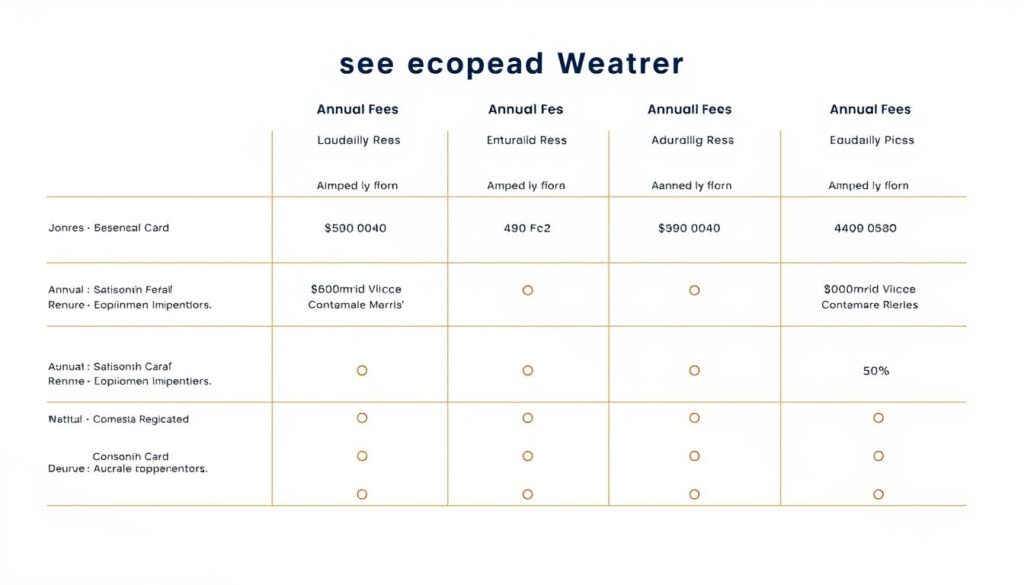
Standard annual fees range from $0 (HSBC Revolution) to $261.60 (UOB PRVI Miles). Mid-tier options typically fall between $120-$180, often waived the first year.
| Program | Annual Fee | First Year Waiver |
|---|---|---|
| HSBC Revolution | $0 | N/A |
| Citi PremierMiles | $192.60 | Yes |
| UOB PRVI Miles | $261.60 | No |
Most banks waive fees if you spend $18,000 yearly. Citi rewards loyal users with 5,000 bonus miles upon renewal—offsetting part of the cost.
Premium options like Amex Platinum charge $1,744 but include concierge services. These make sense for frequent travelers who’ll use all benefits.
Industry data shows 78% success in fee waiver requests. Simply calling customer service often works, especially with good payment history.
Always compare ongoing costs against potential rewards. The right program should pay for itself through miles and perks.
Eligibility Criteria for Travel Credit Cards
Financial institutions set clear benchmarks for approving premium reward programs. Your income, credit history, and documentation determine access to exclusive perks. Here’s what you need to qualify.
Income Thresholds
Entry-level options require at least SGD 30,000 annually. Premium tiers demand SGD 80,000+, with some luxury cards needing SGD 120,000. Self-employed applicants must show 2 years of steady income.
| Card Type | Minimum Income (SGD) |
|---|---|
| Basic | 30,000 |
| Premium | 80,000 |
| Luxury | 120,000+ |
Documentation Requirements
Prepare these for your application:
- NRIC or passport copy
- Latest 3 months’ payslips
- CPF contribution history
Exception: OCBC’s business card accepts companies with SGD 20M annual turnover instead of personal income proof.
Credit Score Impact
A minimum Experian score of 1,800 boosts approval odds. Late payments or high debt ratios may trigger rejections. Check your report for errors before applying.
Approval typically takes 3–7 working days. Some banks offer instant decisions for pre-qualified customers.
How to Maximize Your Travel Rewards
Smart travelers know the real value lies in optimizing every reward opportunity. With the right strategies, you can turn everyday spending into unforgettable trips faster.
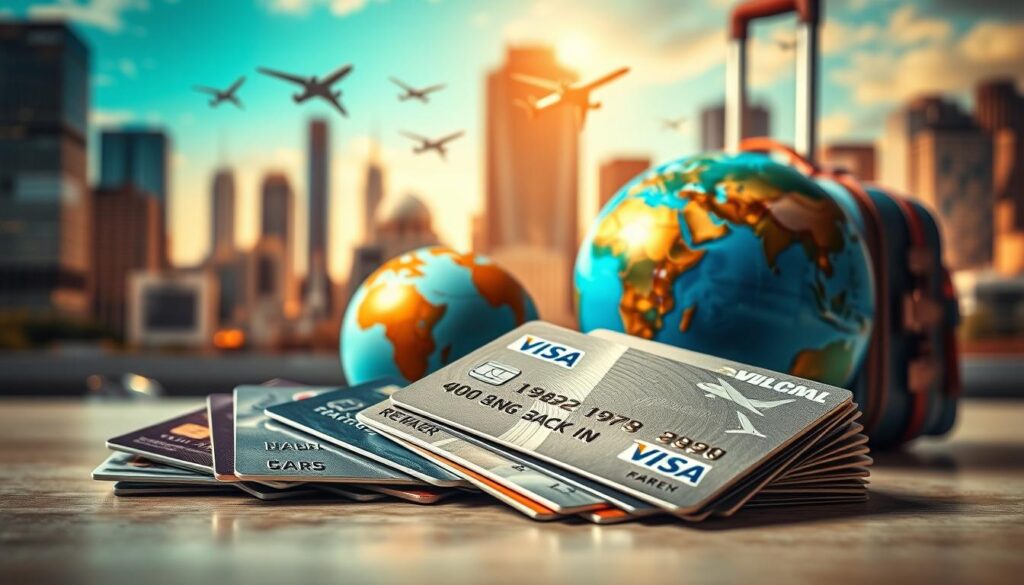
Stacking for Maximum Miles
Combine platforms to earn miles exponentially. For example:
- Book Agoda stays via Citi’s portal (4 miles/S$1)
- Pay with UOB PRVI Miles (2.4 miles/S$1 overseas)
- Add KrisFlyer promotions (extra 1,000 bonus miles)
Mileage Pooling: KrisFlyer vs. Asia Miles
Some programs let you share miles with family. Compare transfer rules:
| Program | Transfer Fee | Minimum Pool |
|---|---|---|
| KrisFlyer | S$25 per 1,000 miles | 5,000 miles |
| Asia Miles | Free | 10,000 miles |
Timing Matters
Q4 travel fairs often partner with banks for limited-time rewards. Last year, DBS offered 50% bonus miles on flight bookings in November.
Redemption Sweet Spots
Upgrade to business class for 60,000 miles (vs. 120,000 for cash). Routes like Singapore-Tokyo offer the best value.
Tools to Track Value
Use Milelion’s calculator to compare programs. It factors in expiry dates, transfer ratios, and partner airlines.
With these tactics, you’ll unlock premium experiences while spending smarter—not harder.
Entry-Level vs Premium Travel Credit Cards
Choosing between basic and high-end reward programs depends on your lifestyle and budget. Entry-level options offer solid benefits, while premium cards unlock elite perks for frequent travelers.
- Amex KrisFlyer (entry): 2 lounge visits/year, $500k insurance
- Amex Platinum (premium): Unlimited lounge access, $2M coverage
The annual fees tell part of the story. The KrisFlyer card costs $171.20 (often waived first year), while Platinum charges $1,744. Premium users get concierge service for restaurant bookings and event tickets.
| Feature | Entry-Level | Premium |
|---|---|---|
| Lounge Visits | 2/year | Unlimited |
| Insurance Coverage | $500k | $2M |
| Concierge | No | 24/7 |
For those earning $150k+, premium cards often pay for themselves. The unlimited lounge access alone could save $1,000+ annually for frequent flyers.
Entry-level cards work well for occasional travelers. They provide core benefits without high spend requirements. Premium options shine for those who travel monthly and value time-saving services.
Consider your trip frequency and preferred airlines when choosing. Both tiers offer value, but to different types of travelers.
Conclusion
Finding the right financial tool for your journeys just got easier with these top picks. The Citi PremierMiles stands out for non-expiring miles, while UOB PRVI offers unbeatable earn rates overseas.
Non-expiring rewards are becoming standard—a win for casual and frequent flyers alike. For optimal coverage, pair a high-earning card with one offering lounge access.
Expect more airline partnerships in 2025, like exclusive KrisFlyer deals. Ready to compare? Tools like MoneySmart simplify your search for the perfect match.

